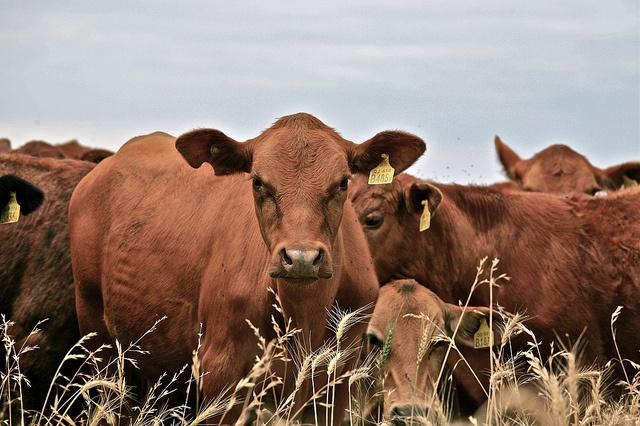
Yesterday Cargill, one of the largest food producers in the world with over $120 billion in revenues, announced that it will reduce the use of antibiotics in some of its feed lots by 20 percent.
Four feedlots in Colorado, Kansas and Texas, in addition to four cattle yards run by the company’s partner Friona Industries, will be affected by this directive. This policy change applies to what the meat industry describes as “shared-class antibiotics,” or drugs that are medically important to both humans and animals.
The largest privately-held corporation in the U.S., Cargill has long taken a nuanced stance on the use of antibiotics in farm animals. Acknowledging that consumers are now increasingly demanding meat that is free from antibiotics, the company has stated that it is committed to “research and innovation focused on reducing the need to use antibiotics while maintaining our commitment to animal welfare.”
Recently, Cargill phased out growth-promoting and shared-class antibiotics for its turkeys and pigs in the wake of the Food and Drug Administration’s (FDA) increasingly tighter restrictions on the use of antibiotics in farm animals (note: JBS has since purchased Cargill’s pork business).
Many animal-welfare advocates say the FDA has not gone far enough on these regulations, but while this shift may be occurring too slow for some, consumer demands and market realities are nudging companies like Cargill to make these changes on their own volition. In fact, many of the beef industry’s largest players insist they are working to make their industry more responsible and sustainable, and the use of antibiotics has been part of that conversation.
The elimination of antibiotics means companies must improve how they treat their animals before they are slaughtered for meat production. Crowded feed lots, gestation crates for pigs and battery cages for chickens long meant diseases could spread rapidly, adding to these animals’ misery. Of course, more staff, more space and better care means higher costs for producers, which in turn will be paid for by consumers.
Nevertheless, more consumers have indicated that this is the path they want taken within the national food supply. Last week, popular California fast food restaurant In-N-Out Burger responded to outside pressure by announcing that it would transition toward beef suppliers that do not use antibiotics. One year ago, McDonald’s said it would transition to antibiotic-free chicken in its U.S. locations. Other chains, such as Subway, have made similar commitments.
The fast-food industry has in part been rocked by the success of chains such as Chipotle and Panera Bread, which largely buy from producers of antibiotic-free meat. In fact, despite its recent struggles, Chipotle maintains a huge following thanks to its stance on animal welfare (even as some critics poke holes in that theory).
Meanwhile, Cargill faces pressure from some of its competitors. Tyson Foods claims it will cut human antibiotics from its broiler chicken production by September 2017. Swift & Co., long a giant in the American meat industry before the Brazilian company JBS acquired it in 2012, boasts about brands of beef products that are antibiotic- and hormone-free and claims it supports research that will further innovation within this sector.
With suppliers following the lead of restaurants and their customers, Cargill’s move can only prove to be a net positive for public health, animal welfare and improved environmental stewardship.
Image credit: Alex Proimos (Flickr)

Leon Kaye has written for 3p since 2010 and become executive editor in 2018. His previous work includes writing for the Guardian as well as other online and print publications. In addition, he's worked in sales executive roles within technology and financial research companies, as well as for a public relations firm, for which he consulted with one of the globe’s leading sustainability initiatives. Currently living in Central California, he’s traveled to 70-plus countries and has lived and worked in South Korea, the United Arab Emirates and Uruguay.
Leon’s an alum of Fresno State, the University of Maryland, Baltimore County and the University of Southern California's Marshall Business School. He enjoys traveling abroad as well as exploring California’s Central Coast and the Sierra Nevadas.














